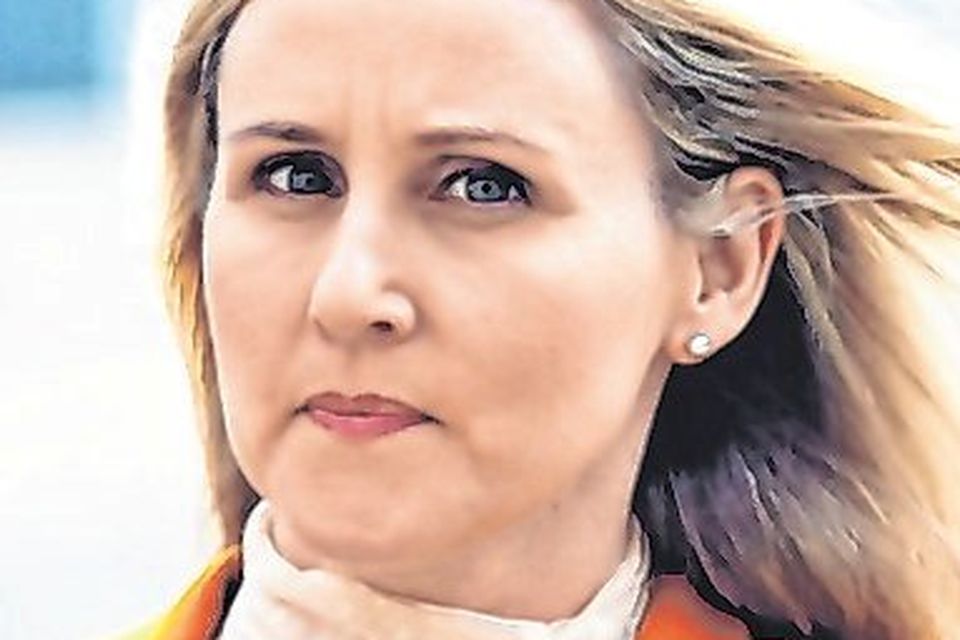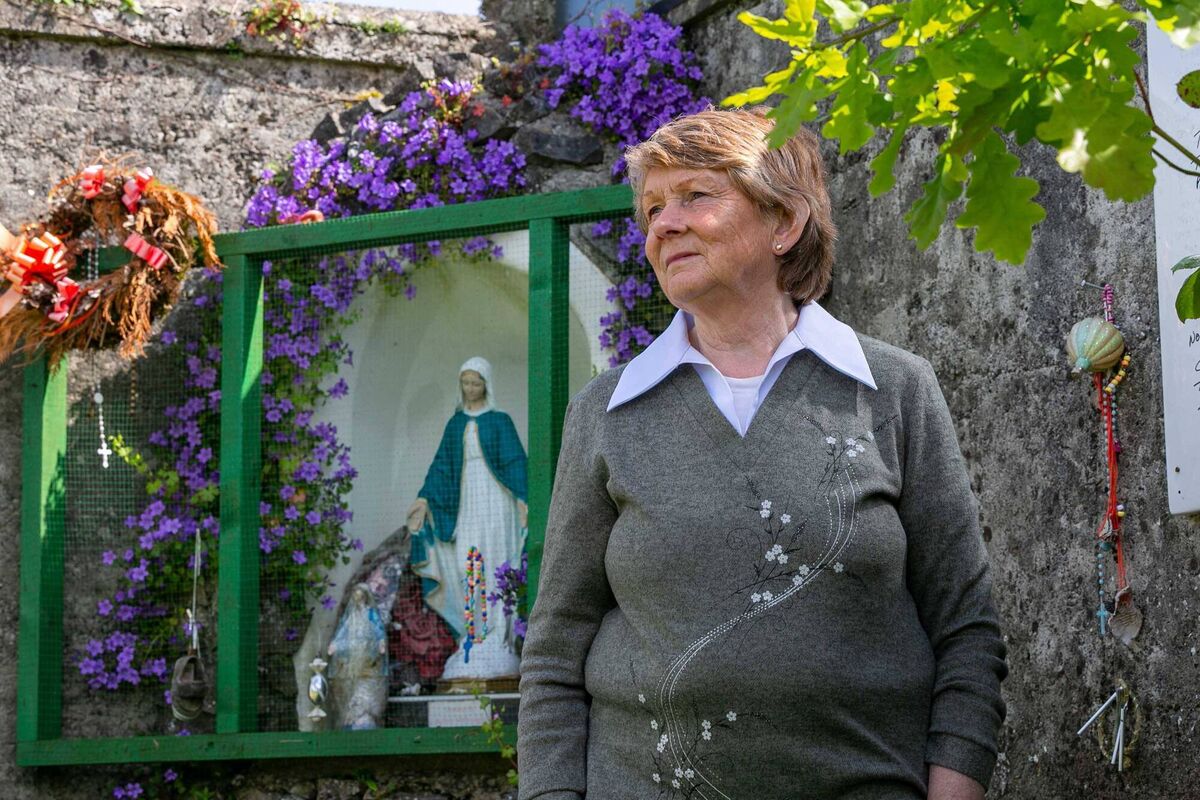The Light They Couldn’t Bury: Catherine Corless, Alison O’Reilly & the Tuam Babies
There are few names in modern Irish history that carry the weight and moral clarity of Catherine Corless. A local historian from County Galway, she is not a politician, nor a celebrity, nor a career activist. And yet, her tenacious pursuit of the truth exposed one of the darkest chapters in our nation’s past — the horrifying neglect, abuse, and mass concealment of the deaths of nearly 800 infants and children at the Bon Secours Mother and Baby Home in Tuam.
In a country where silence once masked so many sins, Catherine Corless stood alone and unwavering, refusing to look away. What she uncovered, at great personal cost, is a national shame that the Irish people can never forget.
The story began, as many do, with curiosity. Catherine, a local woman with a passion for history, had long heard whispers about the Mother and Baby Home in Tuam, run by the Bon Secours Sisters until its closure in 1961. She began researching its history, expecting to piece together a simple local record. What she found instead would horrify the world.
Through meticulous research, Corless uncovered death certificates for 796 children who had died at the home between the 1920s and 1961. These were not isolated incidents. They were systemic. These were babies and toddlers who died from preventable diseases, neglect, and mistreatment. Yet of those 796 children, there was only one registered burial. Where had the rest gone?
Haunted by this question, Corless persisted, against indifference, against resistance, against the gaslighting of those who wanted the past to stay buried. She combed archives, pressed authorities, and continued to speak out, even as she faced ridicule and pushback from both church defenders and politicians who preferred silence to shame.
Her worst fears were confirmed when investigators found a mass grave on the site of the former home. Human remains, mostly of infants and young children, were discovered in what had once been a sewage tank. A sewage tank. That is where these innocent lives were discarded.
The Power of Persistent Journalism
While Catherine did the tireless, painstaking work of uncovering the truth, it was journalist Alison O’Reilly who first brought it to the national and international stage. Alison broke the Tuam babies story in the Irish Mail on Sunday in 2014 and has never let it fade. For more than a decade, she has used every platform available to her to keep the memory of those lost children alive, to press for justice, and to hold the powerful to account. Alison stood shoulder to shoulder with Catherine, amplifying her work and refusing to let the story be buried like so many others before it.
But her fight didn’t stop at Tuam. She has been a relentless advocate for justice for all women and children who suffered under the brutal regime of the mother and baby homes, Magdalene laundries, and Ireland’s forced adoption system. She has given voice to survivors of trafficking, to mothers who had their babies stolen, and to children who were discarded by a system built on shame. Alison O’Reilly has been a fierce, unwavering force for truth — and another woman this country owes a profound debt of gratitude to.

For years, institutions, both religious and state, tried to downplay, dismiss, or outright deny the scale of the horror. There were no immediate apologies. No swift justice. No comfort for the families who had lost children or who had themselves survived the brutality of these institutions.
Catherine Corless stood firm against it all. She never wanted the spotlight. She wanted the truth. And when that truth finally broke through, it could no longer be ignored. Her work directly led to a state inquiry into Mother and Baby Homes, which revealed that nearly 9,000 children died across 18 similar institutions. The causes were often preventable — respiratory infections, malnutrition, gastroenteritis. These children were not just forgotten, they were failed.
The Bon Secours Sisters eventually issued an apology. The government committed to an exhumation, identification, and proper burial of the remains in Tuam.
This week, the long-awaited exhumation of the Tuam site finally began, a day many thought would never come. For years, survivors, families, and advocates like Catherine Corless and Alison O’Reilly were told to move on, dismissed, and met with institutional silence. Every possible delay was thrown in their path. The State and Church fought hard to keep this truth buried, both literally and metaphorically. But persistence won out. Forensic teams are now on-site, beginning the painstaking work of recovering the remains of nearly 800 infants and children discarded in a disused sewage tank. It is an act of long-overdue dignity, a first step toward truth and reckoning. This day belongs to every mother who was silenced, every child lost, and to the women who refused to let them be forgotten.
The work will take years. But without these women, none of it would be happening.
Catherine Corless never sought fame. She did not do this work for glory, but for justice. And in doing so, she put her own wellbeing, peace of mind, and emotional safety on the line — all to give a voice to the voiceless. She stood for the mothers shamed and abused. She stood for the children buried without names, without care, without dignity.
Ireland owes Catherine Corless an enormous debt. She gave the nation a moral reckoning. She forced us to confront the rot at the intersection of Church and State — institutions that once worked hand in hand to silence, punish, and destroy the most vulnerable among us.
In a world where so many choose complicity or comfort, Catherine chose courage. Her integrity illuminated what others tried to keep hidden in the dark. She reminded us what it means to be truly brave, to speak when others remain silent, to act when others look away, and to stand alone — if that’s what it takes — in pursuit of the truth.
Thank You, Catherine & Alison
From the people of Ireland — from survivors, from descendants, from those who weep for the children whose names we may never know — we say thank you. Thank you, for your relentless courage. Thank you for your steadfast heart. Thank you for reminding us that history does not belong to the powerful, but to those who are brave enough to tell it.
You gave a voice to the buried. You gave light to the truth. You gave this country a chance to atone.
May we never forget.
Subscribe to The FEMCAST and help us bring these critical stories to light. Each listener, each voice, and each story makes a difference. Together, we can break the silence.
If you enjoy our content and would like to support our research and work, consider buying me a coffee (by clicking links below). Your contribution helps me continue creating this content. Thank you for your support!







